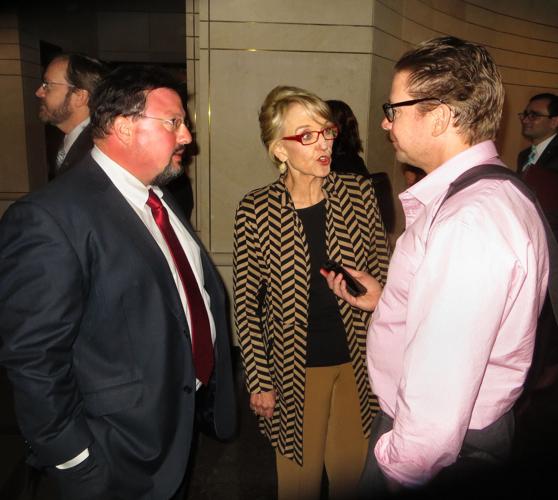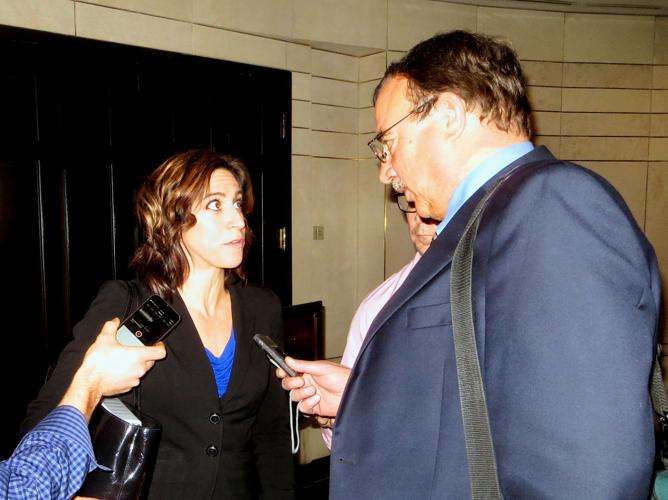PHOENIX — The expansion of the state’s health-care program to 400,000 Arizonans and the levy to fund it are legal, the Arizona Court of Appeals ruled Thursday.
In a unanimous decision, the judges rejected arguments by foes that the assessment on hospitals was a new tax which, according to the Arizona Constitution, needs a two-thirds vote of both the House and Senate to approve. The levy did not get that margin.
But appellate Judge Paul McMurdie, writing for the court, said he and his colleagues do not see it that way. Put simply, he said the levy is not a tax.
Thursday’s ruling is unlikely to be the last word.
Christina Sandefur of the Goldwater Institute, representing many current and former Republican lawmakers who voted against the 2013 expansion, vowed to seek Arizona Supreme Court review. She said the ruling creates a huge loophole in the 1992 constitutional provision she said was approved by voters to set a higher bar before taxes could be raised.
And Sandefur called the ruling “an absurd result.”
But Jan Brewer, who as governor crafted the plan, said she was “grateful” the judges interpreted the law this way.
Brewer, however, told Capitol Media Services the victory could be short-lived.
A health-care plan being considered by Congress immediately freezes new money for the state’s expansion plan and eventually repeals the funding entirely in favor of block grants to the state.
At the heart of the battle is who is covered by the Arizona Health Care Cost Containment System, the state’s Medicaid program.
Before 2013, it provided free care for most people below the federal poverty level, with the federal government picking up about two-thirds of the cost.
The federal Affordable Care Act, however, offered an incentive to states to expand eligibility to 138 percent of the federal poverty level, about $27,800 for a family of three. In essence, Washington would virtually pick up all of the expansion’s cost.
Then-Gov. Brewer sought to sign up Arizona.
But to qualify for the federal dollars, the state had to once again provide coverage for single adults who were below the poverty level. Enrollment in that program had previously been frozen in a budget-saving move.
To pay for that, Brewer crafted a plan to have the cost paid through an assessment on hospitals.
Hospitals did not object because AHCCCS director Tom Betlach set up the levy so that every hospital chain would actually make money from the deal: More patients with government-provided insurance coverage means fewer bills written off as bad debt because of a person’s inability to pay. He even structured it so some hospitals that would not benefit from Medicaid expansion would owe nothing.
The levy is raising about $265 million a year.
When the expansion plan passed with a simple majority, the lawmakers who voted against expansion sued.
Sandefur said the 1992 amendment to the Arizona Constitution requiring a two-thirds vote was designed as a check on new taxes.
Specifically, she said it empowers a minority of lawmakers to block new taxes. And in this case, Sandefur said, more than a third of lawmakers were opposed to the levy.
McMurdie, however, said there is a flaw in her argument: The levy is not a new tax.
It’s true, the judge wrote, that Betlach’s authorization to impose a levy was approved by just a simple majority. But he said the levy itself was not imposed by the Legislature.
“Instead, the levies are imposed by an entity with discretion to set and administer them,” the judge continued. And he said the constitutional provision requiring a two-thirds vote has a clear exception for fees set by a state agency.
The court also rejected Sandefur’s contention that the levy is a tax, because the funds collected are being expended for “general public purposes.”
“But while the entire expansion’s purpose was to provide health care to more of Arizona’s indigent population, the purpose of the assessment, as evidence by the language of HB 2010, was to ‘be used for the benefit of hospitals for the purpose of providing health care for persons eligible for coverage funded by the hospital assessment.” McMurdie wrote.





